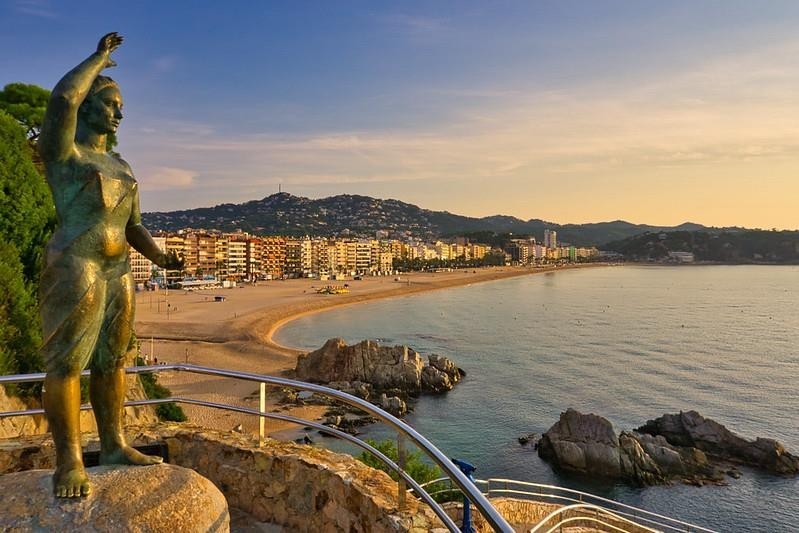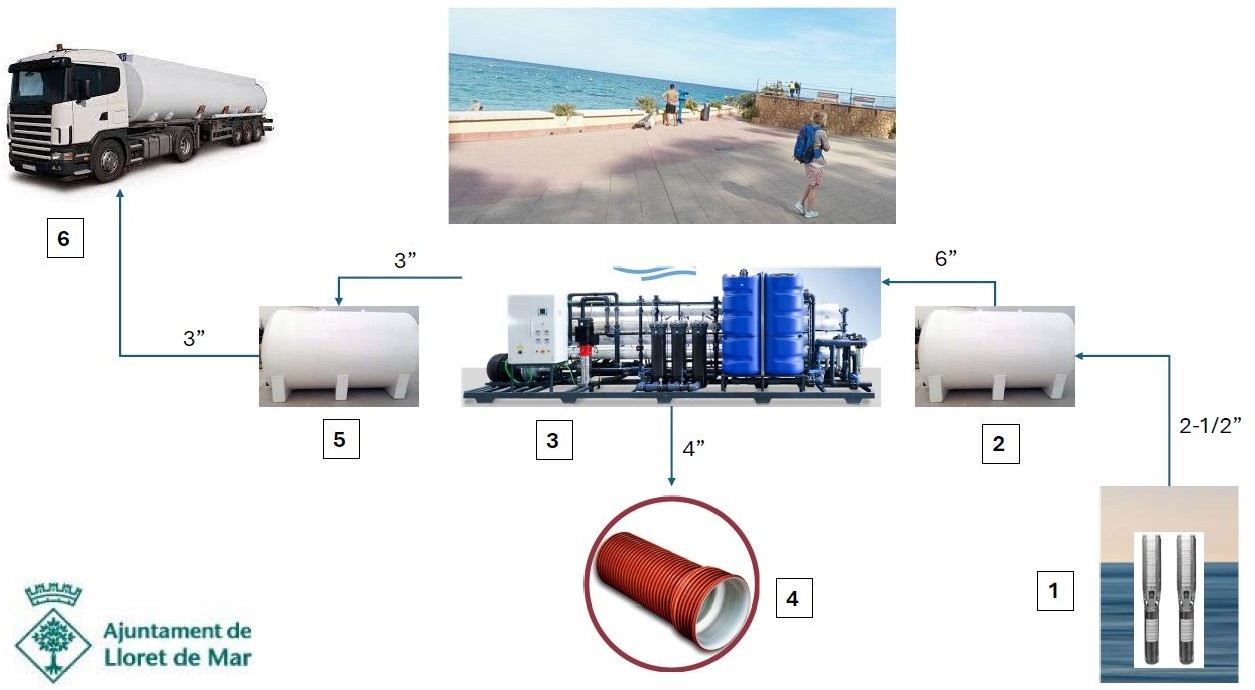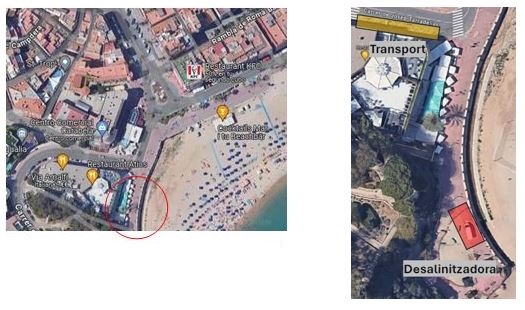
Lloret de Mar‘s business sector and the town council have set to work to find solutions to the water shortage with the purchase of a desalination plant that will allow the use of the swimming pools during the summer season, guaranteeing our visitors an experience like in previous years. The aim is to secure the more than 12,000 jobs directly linked to the tourist sector and the activity of the more than 123 hotels (29,875 hotel beds), 4 campsites (1,337 camping units and 3,786 beds) and 12 blocks of tourist flats and HUTs (1,144 beds).
This measure is in addition to the efforts that the municipality has made in recent years to progressively reduce its water consumption, which is essential in the current context of severe drought in Catalonia. This desalination plant is a short-term solution to ensure the quality of tourist services in the summer season. The objective is to continue working with the ACA to obtain a stable concession and thus have an alternative for filling public swimming pools.
The cost of the project, which will be 1.5 million euros, will be entirely financed by the business community in the tourism sector in Lloret de Mar, with the support of Lloret de Mar Town Council for its processing and viability. The project is currently in the final processing stages with the Catalan Water Agency, which must authorise its use. This initiative has been possible since the Government of Catalonia announced on 7 March the authorisation to install private desalination plants for uses such as filling swimming pools, as long as it is justified that the ultimate objective is to maintain economic activity and jobs.
The desalination plant will be manufactured by the Valencian company Hidro Water, which specialises in the manufacture and distribution of water treatment equipment. The company has designed a seawater reverse osmosis system that will generate 50,000 litres of water per hour, thereby reducing to zero the use of tap water to fill swimming pools.
The water circuit
The water will be collected from a well that performs an initial natural filtering of the seawater (1); from there, the water is pumped through a pipe to the storage tanks (2), located at the end of the Paseo Marítimo; by means of a reverse osmosis system it is desalinated (3) and, once treated, the water is stored in a tank (5). The water, now fit for use, will be distributed in lorries to all those hotels that have paid for the installation of the desalination plant (6) and therefore have permission to buy the water. The waste obtained from the whole process, i.e. the brine, will be connected to the reclaimed water pipeline of the WWTP which returns this water to the sea (4).

The initiative promoted by the Lloret de Mar hotels association, which includes hotels, campsites, tourist flats and concentrated HUTs, has been extended to neighbouring municipalities such as Tossa, which has already joined the initiative, because the emergency situation affects the entire Costa Brava and it is therefore necessary to seek joint solutions. The Lloret de Mar water park, Waterworld, as well as the Privé Group and Sanddance, owners of Disco Privé, and the Camiral Golf & Wellness resort in Caldes de Malavella have also collaborated financially, as the aim is to avoid a situation similar to that caused by the COVID, in which the entire tourism sector was affected.

Reclaimed water, the future of the municipality
In addition to this private initiative, Lloret de Mar is also working to speed up the construction of new pipelines to expand the use of reclaimed water. At present, Lloret uses less than 10% of all the reclaimed water at the WWTP, which supplies the town from two points: the Fenals area and calle Igualada, and is used for street cleaning, watering gardens and public landscaped areas, supplying fire engines and pitch & putt courses. The City Council will open a new pipeline in the Rieral area to further expand the options for more extensive use of reclaimed water.


